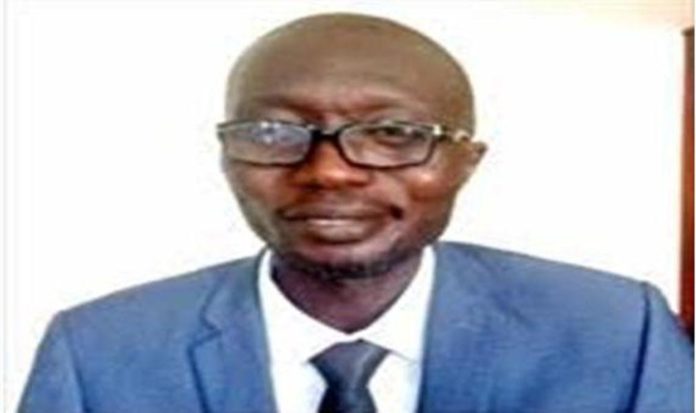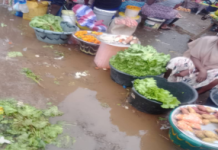By: Kebba AF Touray
The Governor of the Central Bank of The Gambia Bakary Jammeh, has revealed that the increase in the price of cement is temporal and that this will be sorted out. Jammeh made these remarks during the question and answer session of the Monetary Policy Committee meeting with journalists on Wednesday, 28 February, 2018, at the Central Bank of The Gambia (CBG).
Gov. Jammeh said that after their survey, they realised that the demand for cement in the country has significantly increased, and meeting the demand became problematic; that basic economics with excessive demand affects prices. “This is expected to be temporal, as we expect more will come in and prices will come down. This is temporal and we are going to sort it out”, he emphasized.
On fuel Jammeh said this was under the domain of the Ministry of Finance, but noted that previously, this was subsidised whether there is change in prices or not change; that now things depend on developments in the international market; that when prices increase internationally, domestic prices will adjust nationally; that according to international prices, when prices go down, domestic prices will adjust accordingly.
The impact of the increment in fuel price, will not be that great and as the CBG, they are closely monitoring the situation, he disclosed. On what led to the improvement of the import cover, he explained that when they took over, they had an international reserve of sixteen million US dollars (US$16,000,000), together with the short term swap that the Central Bank borrowed from Commercial Banks to the tune of thiry eight million US dollars (US$38,000,000); that when they took over, the country was left with only 22 million dollars which if converted, will cover around 0.6 months of imports; that the removal of restrictions placed on the financial market, also assisted greatly to ameliorate the situation.
“We believe is that free market works if it is smartly regulated and this was exactly what we did. Supply conditions started improving and we were able to start buying and to rebuild gradually. We also had an arrangement with the IMF whose staff monitored our programmes and we started performing well and met our targets on time. This helped us to get donor support to rebuild the country’s reserves”, he noted.
He said they paid the 38,000,000 dollars and still maintained 4.5 months of imports. Jammeh said the implication on the economy is that reserve is a security that helps in emergency situations; that it helps as a cushion for the economy against external impacts and pressures.
On inflation control mechanisms, Gov. Jammeh said when looking at inflation, one looks at a broader market and the entire aspect of goods and services; that this is how inflation is judged. He averred that inflation in food prices has been steadily going down, whereas non-food prices slightly increased; that the mandate of the CBG is to maintain price stability and in doing so, they employ indirect tools to maintain stability, because of the free market system.
“This is what the monetary policy does and that is why we are jacking up the interest rates. We will withdraw liquidity to ensure that we have money in the system that is consistent with macro fundamentals. In doing so, we maintain stability and this is the strategy that we have and is helping us to keep high on the economy very closely”, he said.
Governor Jammeh concluded that inflation is going to continue trending towards their financing targets and this year, they are expecting better economic growth at a minimum of 3.8 percent. This he added can be revised upwards, due mainly to strong performance of the construction sector, tourism, a rebound of agriculture and the interest of foreign investors in the Gambia.
“Outlook is very promising. Our medium term projection is a minimum of 5 percent growth for The Gambia”, he said.





















